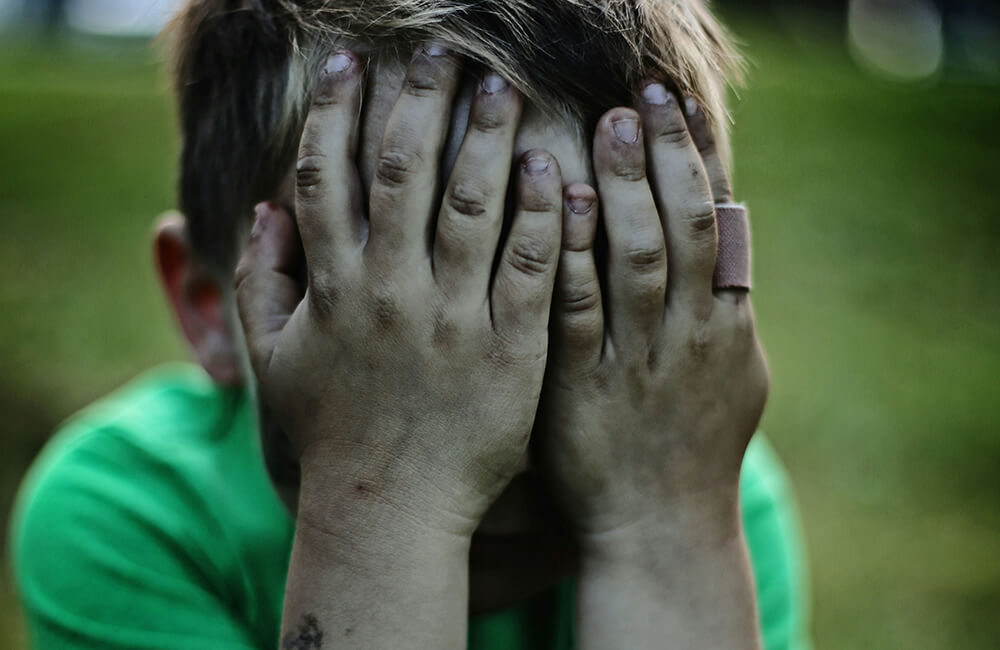Safety, food, shelter and medical care
Helping kids psychologically recover from the impact of the natural disasters that have hit the United States and its territories, along with the Caribbean islands is complicated. This article provides tips and books to help kids psychologically recover from the disastrous hurricanes. Many are paying appropriate attention to the immediate and necessary needs of shelter, food, and medical care. Helping kids psychologically recover includes providing safety, getting children back to school, and creating stability in children’s lives, which are all critical and well under way. Counseling and mental health providers and centers have also opened their doors to families to provide professional support.
Distress symptoms can be common after a natural disaster
Clearly, the sooner we can re-establish homes, schooling, food, and routines for children, the sooner they are likely to psychologically recover. However, it is not unusual for children to show signs of distress even after their living situation is stabilized. Witnessing and surviving a natural disaster could lend itself to symptoms of anxiety, depression, and even post-traumatic stress disorder. Although most children will recover, we need to continue to pay close attention to children’s emotional and psychological needs, anxiety, and fears.
Risk factors
Children may be at higher risk for anxiety, depression, behavioral issues, and post-traumatic stress disorder if they:
- Lost a loved one
- Lost their homes
- Lost a pet
- Witnessed someone die or be injured
- Continue to live in shelters or transitional housing
- Have to move from home to home
- Are not be able to attend school regularly
- Do not have family and social support
- Continue to experience significant stressors, such as changes in schools, homes, financial and living standards, friends, and isolation.
Signs and symptoms of distress
Children, particularly younger ones, may not be able to identify or verbally express their worries, confusion, fear, anger, or even questions about what happened and what will happen next. Some common signs and symptoms of distress to watch out for include:
- Sleep disturbances
- Nightmares
- Bed wetting
- Fatigue
- Loss of motivation
- Social withdrawal
- Irratability
- Changes in appetite and weight
- Poorer academic performance
- Opposition and defiance
- Separation anxiety
- General anxiety
- Excessive sadness and moodiness
- Excessive tearfulness
Tips and books:
If you notice your child demonstrating some or many of the above and it continues over time, you could consider the following tips and books to foster healing and recovery:
- An evaluation by your school psychologist, pediatrician, or a mental health provider in your community.
- Ask your child open ended questions about what they remember of the hurricanes and the flooding: What do you remember seeing? What do you remember hearing? What do you remember feeling? What do you remember thinking?
- Ask your child what they might be worried, sad, scared, or mad about now?
- Validate children’s feelings and invite them to ask you questions.
- Children often worry about their own safety and the safety of their loves ones after a traumatic event. Reassuring them that they are safe, with a proactive safety plan in place (shelter, nutrition, school, bedding, etc.), can help kids feel calmer.
- Try to create consistency and routine in your children’s lives. Predictability lends itself to a sense of control and efficacy.
- Teachers, pediatricians, and school psychologists, who are the front line professionals, can be proactive in asking children and parents how they are doing. Providing appropriate referrals and resources to families can be enormously helpful.
- Parents hit hard by the hurricane and floods may be exhausted in trying to get their homes and lives back to together. Supporting neighborhood parents with food, car pools, sleep overs, homework help, and after school activities can make a huge difference for families.
- Reading a coping, therapeutic book with your child can also significantly facilitate coping and resilience. There are a few exceptional books that focus on traumatic events, including, Flood, Once I was Very Scared, and A Terrible Thing Happened. An excellent resource for young kids struggling with a traumatic death during the hurricanes or other traumatic events is Where Did My Friend Go?
- Parenting books on helping children cope with anxiety and stress can also be an excellent source of guidance.
- Invite your children to draw pictures and write letters to share their thoughts and feelings with you and their loved ones.
- Engage your children in healthy and fun activities. Getting back to sports, dance, music, art, baking, hiking, and alternative exciting activities can be very therapeutic for children.
- Reach out to resources in your community and share your needs. It takes a village to help kids thrive, and after the disastrous hurricanes, many have and will open their homes and hearts to you.
